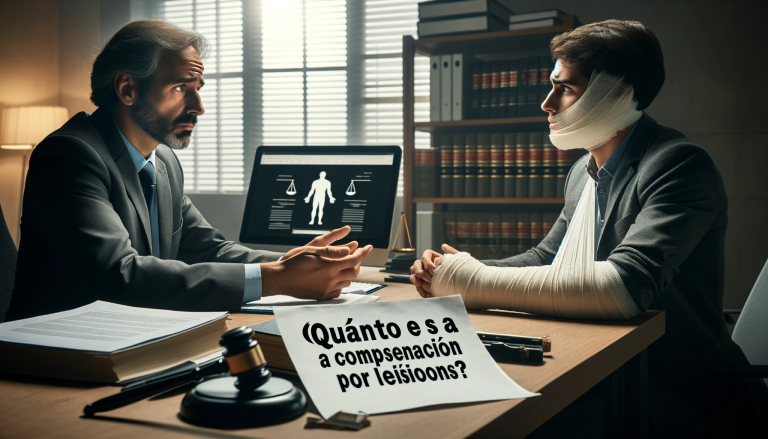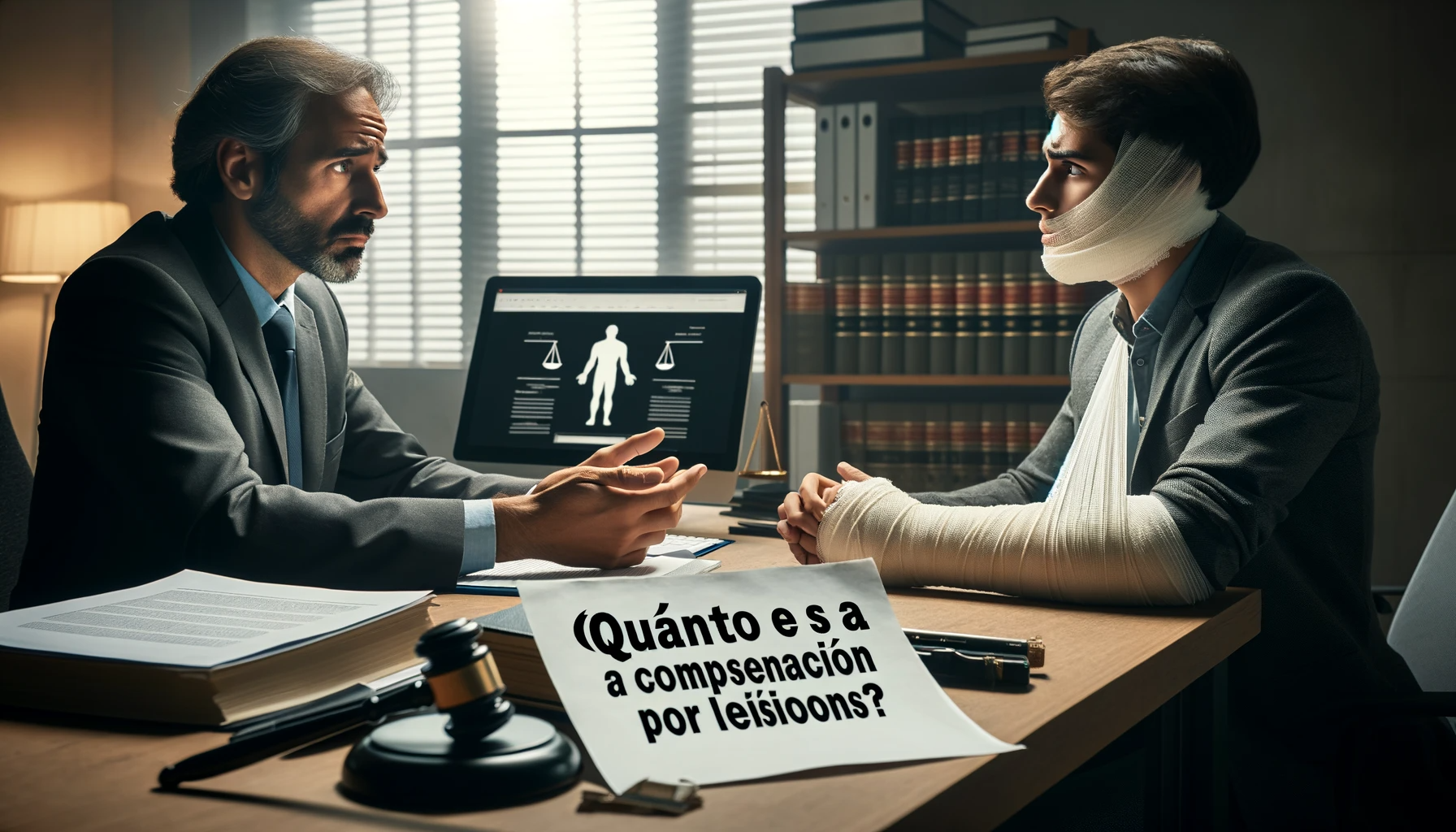Understanding California's At-Fault Car Accident Laws
In the state of California, responsibility for a car accident is determined based on the "at-fault" law. It outlines that the person responsible due to negligent driving must bear the costs associated with the accident, including both vehicle damage and medical costs. This can have severe implications, especially if you are the one at fault.

The 'At-Fault' Concept Explained
The principle behind California's at-fault law is quite simple. If you are the driver who caused the accident because of carelessness or violation of traffic rules, you are considered 'at fault'. This includes acts like not stopping at red lights or stop signs, exceeding speed limits, reckless driving, driving under the influence, or any other rule violations.
Determining Fault in an Accident
To identify who is at fault in a car accident in California, evidence such as police reports, witness testimonies, and the damage on vehicles involved is examined. Photographs from the accident scene, surveillance footage, and even expert analysis might be used. In some cases, both drivers might share the blame, with a percentage of fault assigned proportionately.
'Pure Comparative Negligence' Rule
California follows the 'Pure Comparative Negligence' rule, which means that even if you are partially at fault, you can still recover damages. However, your compensation will be reduced by the percentage of your fault. For instance, if you were found to be 30% at fault, you will only be able to recover 70% of the damages.
Insurance Implications
Being at fault in a car accident also affects your insurance premiums. Your insurance provider is likely to increase your rates after an at-fault accident, and the accident will remain on your driving record, influencing future insurance quotes. Furthermore, if you are uninsured and at fault, you could face hefty out-of-pocket expenses, potential legal ramifications, and possible suspension of your license.
Understanding California's at-fault car accident laws can help you comprehend your responsibilities and liabilities should you be involved in a car accident. It is advisable to drive responsibly and ensure that your auto insurance policy is up-to-date and comprehensive enough to adequately cover any potential costs.
How Liability is Determined in California Car Accidents
The Role of Negligence
In most car accidents, negligence is the predominant factor that determines liability. California operates under a "pure comparative negligence" system. According to this legal doctrine, every party involved in the accident can share some degree of fault. The court looks at each party's actions leading up to the incident and assigns a percentage of blame accordingly. Therefore, even if you are partially liable, it does not bar you from collecting damages. However, any damages awarded will be reduced by the percentage of your fault.
California Vehicle Code
The California Vehicle Code sets out rules and regulations for road use, and any breach can help establish fault. These rules cover everything from speeding regulations to right-of-way directives. If a driver violates any of these rules and causes an accident, they can be held responsible under the concept of "negligence per se". This concept applies when an individual breaks a law designed to protect the public safety, resulting in harm to another individual.
Evidence in Determining Fault
Evidence plays a crucial role in determining liability. This may include photographs from the scene, police reports, witness statements, and more. For instance, if another driver ran a red light, surveillance footage could provide irrefutable evidence of their negligence. Similarly, a detailed police report can support claims about the circumstances surrounding the accident. Therefore, it is essential to gather as much evidence as possible following an incident.
Role of Insurance Companies
Insurance companies also play a significant part in attributing fault in a car accident. After an accident, insurers from both parties will conduct their investigations into the incident. They look at the damage caused, consider statements from both drivers, and review the applicable laws before determining the percentage of fault for each driver. However, remember that insurance adjusters work in the best interest of their companies and may assign higher fault percentages to limit their payouts.
Legal Assistance in Determining Liability
Determining liability in a car accident can be complex, especially when multiple parties are involved, or the facts are disputed. In such cases, it is beneficial to secure legal representation. An attorney with experience in California's traffic laws and liability determination can effectively negotiate with insurance companies and ensure you receive fair compensation. They can also defend your rights if the case proceeds to court.
Potential Financial Implications of At-Fault Accidents
Increased Insurance Premiums
One of the most significant financial implications of being at fault in a car accident is the possible increase in your insurance premium. Being deemed accountable for a collision often indicates to your insurance company that you're a higher risk driver. As a result, an increase in your auto insurance rates may occur. This rise can vary greatly depending on the specifics of the accident and your driving history, but it is certain that an at-fault accident will impact your premium.
Payment of Deductibles
If damage has occurred to your own vehicle in the accident, you may need to pay your insurance deductible before your insurance company covers the remaining cost of repairs. The amount of the deductible depends on your policy. Nevertheless, this is an immediate out-of-pocket expense that you'll have to bear as the at-fault driver.
Liability for Damages and Medical Expenses
When a collision occurs, the responsible party is liable for any damages and medical expenses resulting from the accident. California is a 'fault' state in car insurance terms, which means that the at-fault driver's insurance company will be responsible for covering these costs. However, if insurance coverage doesn't fully meet these expenses, you could be personally liable for the excess amount.
Fines and Legal Penalties
Being found at fault for a car accident in California may result in fines particularly if there were infractions such as speeding or reckless driving associated with the incident. Plus, if a lawsuit ensues because of serious injuries or wrongful death, you may encounter legal fees and potential judgments against you.
Increased Costs Due to Increased Risk
Apart from direct costs associated with the accident, being at fault can translate to higher costs down the road. You may be tagged as a high-risk driver, which could affect your ability to get affordable insurance in the future. Furthermore, insurers might require that you have a SR-22 Proof of Financial Responsibility for a specific duration after the accident, which adds another layer of cost and complexity to maintaining your driving privileges.
Remember, understanding these potential financial implications can better prepare you to deal with the aftermath of an at-fault accident and make informed decisions about your insurance coverage.
Impact on Car Insurance Premiums
Increase in Premium Rates
After an at-fault accident in California, it is common for car insurance premiums to rise. This is primarily because insurance companies see you as a higher risk driver due to the recent accident. The exact increase can vary greatly depending on the severity of the accident and your prior driving record. However, some sources suggest that Californians may see their rates go up by as much as 40%.
Duration of Increased Premiums
The duration of these increased rates can also vary. However, typically, the accident will remain on your driving record for three years in California. During this period, your insurance provider may continue to charge you higher premiums. After this three-year mark, assuming you have no additional at-fault accidents, your rates should begin to decrease.
Accident Forgiveness Policies
It’s worth noting that some insurance providers in California offer an "accident forgiveness" policy. If you have this policy, your rates may not increase after a first at-fault accident. However, not all providers offer this, and there will likely be certain criteria to meet for eligibility such as having a clean driving record for a specific number of years.
Driving Record Points System
California uses a point system to track traffic violations and at-fault accidents. Depending on the type and severity of the incident, one or two points can be added to your record. Having these points can also contribute to increased car insurance premiums.
Saving on Future Premiums
There are ways to mitigate the impact on your future premiums due to an at-fault accident. Taking a state-approved defensive driving course could potentially lower your rates. Additionally, maintaining a clean driving record after the accident, shopping around for new insurance providers, and taking advantage of discounts for which you qualify can be effective strategies for savings.
Dealing with the Legal Consequences of an At-Fault Accident
Understanding the Legal Implications
If you are the driver at fault in a car accident in California, you may face legal consequences. This could include charges of reckless driving or even vehicular manslaughter in extreme cases where fatalities occur. The consequences of such charges can range from fines to jail time. Understanding the potential legal implications is the first step in dealing with this complex situation.
Negotiating with Insurance Companies
After an accident, your insurance company's responsibility is to cover damages in line with your policy's terms. However, if you're at fault, your premium rates might increase. In California, companies can raise your premiums for up to three years following an accident for which you were at fault. It's crucial to communicate effectively with your insurer, and in some cases, you may want to consult with a personal injury lawyer to ensure your rights are protected.
Civil Liability Issues
In addition to dealing with your insurance company, you may also face civil litigation if anyone else involved in the accident chooses to file a lawsuit for property damage or personal injury. California operates under a "fault" system, meaning that the person found responsible for the accident will be held liable for any damages. Thus, understanding your civil liability is also vital.
Points on Your Driving Record
As a result of being at fault in a car accident, points may be added to your driving record. Accumulating too many points in a set period can lead to your license being suspended. In California, this generally occurs if you accumulate four points within 12 months, six points within 24 months, or eight points within 36 months.
Seeking Legal Guidance
While dealing with the aftermath of an at-fault accident can be overwhelming, it's important to remember that help is available. A knowledgeable attorney can guide you through the legal processes involved, ensure your rights are represented, and help minimize any potential negative consequences. It's crucial to seek legal advice as soon as possible after an accident to make sure you're well-informed about your options and responsibilities.
Rights and Responsibilities of At-Fault Drivers
Accepting Liability
In California, drivers who are determined as "at-fault" in a car accident must accept legal responsibility for the incident. This obligation involves acknowledging their actions led to the collision and the damage that followed. The fault may be due to driver errors such as speeding, running a red light or violating other road rules.
Handling Damage Costs
As per Californian law, the at-fault party is responsible for covering all damages resulting from the accident. This includes both property damage and any physical injuries sustained by other involved parties. Whether this is done out-of-pocket or through insurance depends on the circumstances and arrangements of the involved parties.
Cooperating with Insurance Companies
At-fault drivers are required to cooperate fully with insurance companies during investigations. This includes providing all relevant information about the incident, submitting to interviews, and sometimes appearing in court, if necessary. Failure to cooperate can have serious consequences; insurance may not cover the at-fault party's costs, leading to potential lawsuits or personal financial damages.
Right to Legal Representation
Drivers at fault also have the right to hire an attorney to represent them in legal proceedings. It’s crucial to understand that being the at-fault driver doesn’t necessarily mean you don’t have rights. This representation can be helpful in navigating the legal process, ensuring all paperwork is correctly filled out, and potentially negotiating liability claims.
Adhering to DMV Requirements
Lastly, at-fault drivers in California have responsibilities towards the Department of Motor Vehicles (DMV). After a crash, drivers are obligated to report the incident to the DMV within 10 days if there was property damage over $1,000 or if someone was injured or killed. Failure to report can lead to penalties, including the suspension of driving privileges.
Steps to Take After Causing a Car Accident in California

Immediate Actions After an Accident
Firstly, in the aftermath of an accident, it is essential to stay at the scene. Leaving can lead to hit-and-run charges which are significantly more serious. Ensure everyone's safety and call the proper authorities if necessary. Even if there appear to be no injuries, it is wise to report the accident to the police to create an official record.
Exchange Information and Document the Scene
Next, exchange information with the other driver. This should include names, addresses, driver's license numbers, vehicle license plate numbers, and insurance information. In addition, document the scene as much as possible by taking photographs and notes. Include details about the accident such as time, date, location, weather conditions, and how the crash occurred. Photos of vehicle damage and the general scene can be beneficial for insurance claims and any legal proceedings.
Contact Your Insurance Company
You should inform your insurance company about the accident as soon as possible, even if you're at fault. Most insurance policies require their policyholders to promptly report every auto accident. Provide them with all factual information about the incident, and avoid guesses or inaccurate statements.
Seek Legal Counsel
If you believe you are at fault in a car accident in California, it may be beneficial to seek legal counsel. An attorney who specializes in car accidents can provide advice and protect your rights during the process. They can help explain the complexities of the law, including California’s comparative negligence rule that allows at-fault drivers to recover a certain percentage of damages.
Follow-Up Activities
Finally, ensure to follow up on car repairs and medical treatments. Maintain records of all associated costs, as these documents may play a vital role if there's a dispute about the costs resulting from the accident. Also, it is crucial to adhere to any legal directives or requirements that follow the accident. These may involve court appearances, fines, or other penalties.
Conclusion
Being deemed at fault in a car accident within the state of California carries substantial consequences, both in terms of your financial situation and legal standing. It is of utmost importance to fully grasp the extent of your responsibilities in such circumstances, ensuring you promptly report the accident to the appropriate authorities and your insurance provider. Additionally, it may be prudent to contemplate the prospect of seeking legal counsel if the complexity of the situation warrants it. By diligently following these necessary steps, you can better navigate the intricate terrain of this challenging situation, safeguarding your rights and responsibilities, and potentially mitigating the adverse impacts on your personal and financial well-being.
Look for an attorney who has the right legal resources for your legal needs.
Contact us here on the
Warmuth Law website or through our hotline 888-517-9888.
Frequently Asked Questions
1. Can I avoid liability if I have insurance?
Having insurance does not exempt you from liability if you are at fault in a car accident. Liability means being responsible for the consequences of the accident. When you have insurance, it serves as a financial safety net, protecting you from having to pay for the damages entirely out of your pocket. However, the insurance coverage has limits, which means it will cover the damages up to a certain amount, depending on your policy. If the damages or injuries exceed your policy limits, you may still be personally responsible for the excess amount.
2. How can I prevent an increase in my insurance premiums?
To prevent a substantial increase in your insurance premiums after being at fault in an accident, it's essential to take certain steps. Firstly, consider discussing the accident with your insurance provider. Be honest and provide them with all the necessary information. Some insurance companies offer accident forgiveness programs, which means they won't raise your premiums for your first at-fault accident. Additionally, you can explore options like increasing your deductible, taking a defensive driving course, or shopping around for quotes from different insurance providers to find a better rate.
3. What if I can't afford to pay for the damages and medical bills?
If you cannot afford to pay for the damages and medical bills resulting from the accident, your insurance should step in to cover these expenses up to the limits of your policy. This is one of the primary purposes of having insurance – to protect you from financial ruin in such situations. However, if the costs exceed your policy limits, it's crucial to consult with an attorney. They can help you explore options, such as negotiating with the other party, setting up a payment plan, or considering bankruptcy as a last resort. An attorney's guidance is essential to protect your financial interests.
4. Is it advisable to admit fault at the scene of the accident?
It's essential not to admit fault at the scene of the accident, even if you believe you may be responsible. Admitting fault can have significant legal and financial consequences. The determination of fault should be left to the insurance companies and the police report. Instead, ensure everyone's safety, exchange necessary information with the other party involved, and report the accident to the authorities. Avoid discussing blame or guilt at the scene, as this can be used against you later in the claims process.
5. How long do I have to report the accident to my insurance company?
You should report the accident to your insurance company as soon as possible. Timely reporting is crucial because failing to do so promptly may lead to complications in the claims process. Most insurance policies have a clause that requires you to report accidents within a reasonable timeframe. Delaying the report can result in your claim being denied or delayed, potentially causing more difficulties in resolving the situation. Therefore, it's in your best interest to notify your insurance company promptly after the accident occurs.











